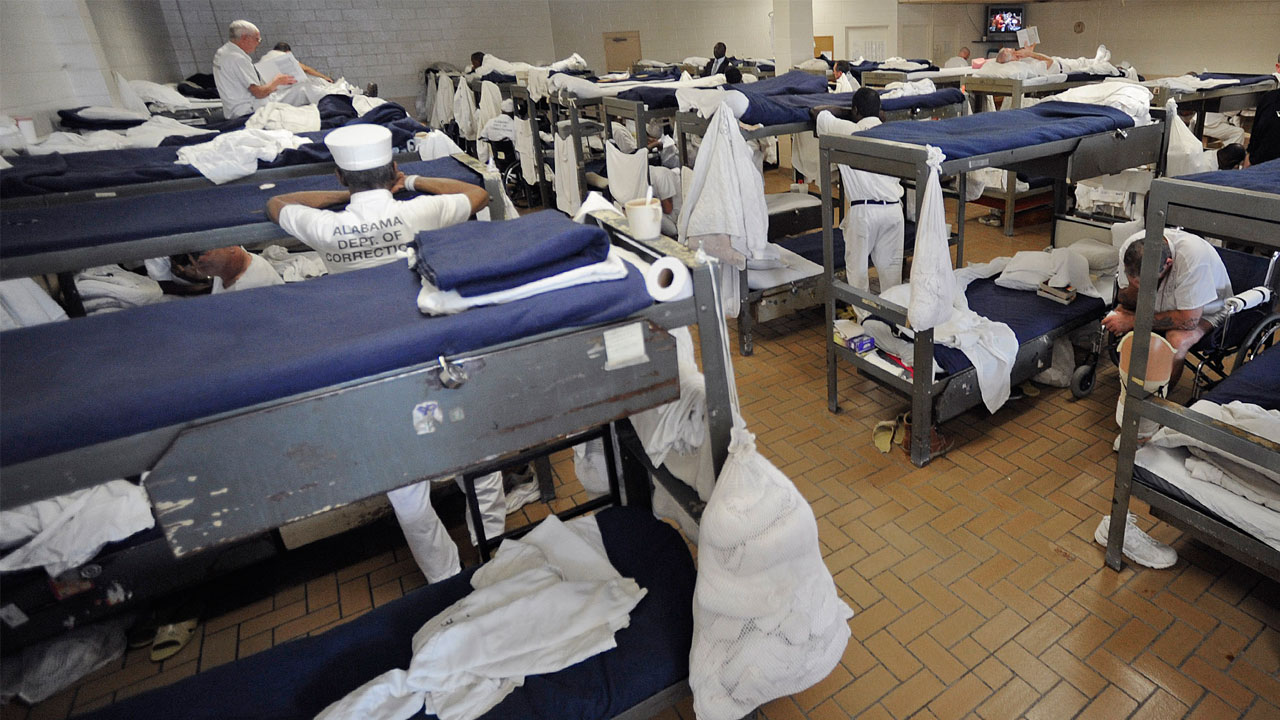The SPLC asked a federal judge today to force the Alabama Department of Corrections (ADOC) to take immediate action to protect suicidal prisoners – an action that comes after a prisoner represented by the SPLC was found dead in his cell from suicide 10 days after testifying in federal court about the state’s failure to provide adequate mental health care to prisoners.
The emergency motion filed by the SPLC notes that 12 state prisoners have committed suicide this year and says other prisoners are at “substantial risk of profoundly irreparable harm.” The motion, which seeks a temporary restraining order or a preliminary injunction, asks the court to ensure that the state provides a “measure of basic compliance with Plaintiffs’ constitutional rights” that will “protect against immediate threat to human life.”
The motion, filed in the U.S. District Court for the Middle District of Alabama, Northern Division, comes as the SPLC is in the midst of a trial over the quality of mental health care in the state’s prisons. The trial, which began earlier this month, is expected to last eight weeks.
“As this suicide has tragically demonstrated, the state must immediately step up and fulfill its responsibility to protect these prisoners,” said SPLC Senior Staff Attorney Maria Morris. “The state cannot wait until the trial is over. Lives are hanging in the balance.”
Jamie Wallace, a named plaintiff in the SPLC class action, was found hanging in his cell at Bullock Correctional Facility on Dec. 15 – two days after being released from suicide watch, according to the SPLC motion. Wallace, who testified at the trial on Dec. 5, had been placed on suicide watch more than 60 times during his five years in the prison system.
Initial records provided to the SPLC show that Wallace received no counseling during the time he was on suicide watch. He also received no counseling after being discharged from suicide watch. Wallace’s care providers at the correctional facility indicated that they believed he was feigning his condition. It also appears he was left unattended for most of the day of his suicide.
As recently as Oct. 26, a psychologist and a nurse practitioner both recommended that Wallace be evaluated at the state’s psychiatric hospital, the motion states. During Wallace’s testimony at trial earlier this month, a federal judge ordered that he receive an evaluation. Despite the court’s order, Wallace did not receive the evaluation.
The motion also describes how after four days of trial testimony, ADOC Associate Commissioner Ruth Naglich had shown she “has done little to nothing” to correct problems with the mental health care for acutely suicidal prisoners and prisoners at risk of becoming acutely suicidal. Evidence presented in the case also shows that ADOC Commissioner Jefferson Dunn “has also done little to nothing” to correct the problems, according to the motion.
The SPLC’s motion asks that an independent expert evaluate the prison system’s suicide watch policies and practices and recommend remedies within 45 days. After receiving the recommendations, the prison system should have a plan in place within 75 days to implement the remedies.
The motion also demands the state take steps to protect suicidal prisoners, including ensuring all prisoners undergo a risk assessment by a licensed psychiatrist or psychologist within 24 hours of being placed on suicide watch; providing constant watch over acutely suicidal prisoners; and ensuring prisoners are discharged from suicide watch only after a licensed psychiatrist or psychologist conducts an in-person, confidential evaluation outside the prisoner’s cell.
The lawsuit, filed in 2014, describes how the mental health needs of prisoners are routinely ignored in a prison system where dangerous – even life-threatening – conditions are the norm. The lawsuit was filed by the SPLC, Alabama Disabilities Advocacy Program, Baker, Donelson, Bearman, Caldwell & Berkowitz, PC; and Zarzaur, Mujumdar and Debrosse.
Earlier this year, the state settled a portion of the lawsuit regarding violations of the Americans with Disabilities Act. In that settlement, the ADOC committed to provide services and fair treatment to incarcerated people with disabilities. The trial for the medical phase of the lawsuit is expected to start in 2017.



